Events
| Name | organizer | Where |
|---|---|---|
| MBCC “Doing Business with Mongolia seminar and Christmas Receptiom” Dec 10. 2025 London UK | MBCCI | London UK Goodman LLC |
NEWS
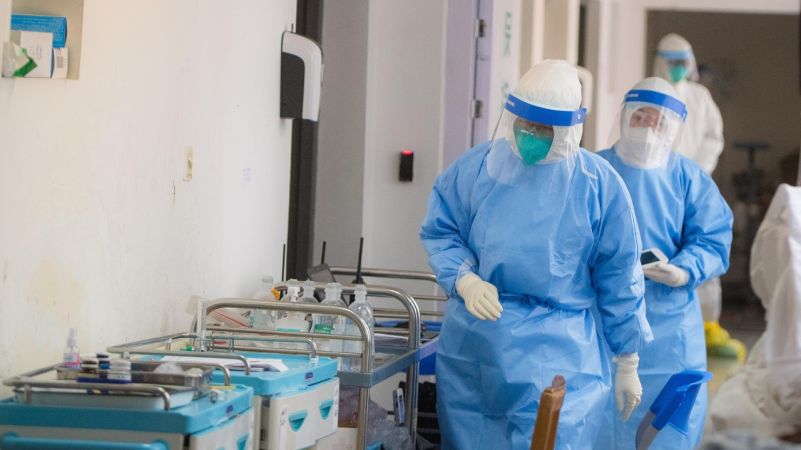
Mongolia confirms 1,185 new COVID-19 cases www.xinhuanet.com
Mongolia's national count of COVID-19 cases rose by 1,185 to 38,470 in the past 24 hours, the country's National Center for Communicable Diseases (NCCD) said Sunday.
Apart from one imported case, all the other new infections were locally transmitted, mostly detected in the country's capital Ulan Bator, the NCCD said in a statement.
Meanwhile, Mongolia's total death toll reached 126 with two new fatalities, and 1,026 more people were newly discharged from hospitals, bringing the total number of recoveries to 21,707, according to the center.
The Asian country launched a national vaccination campaign against COVID-19 in late February, with the aim of covering at least 60 percent of its population of 3.3 million. Over 887,200 people have been vaccinated against the virus in Mongolia so far. Enditem

Mongolia to provide USD 1 million in humanitarian assistance to India www.montsame.mn
The Government of Mongolia today, April 30, decided to provide USD 1 million as humanitarian assistance to help India deal with a massive surge in COVID-19 cases in the country.
On Monday, Prime Minister Oyun-Erdene met with Ambassador of India to Mongolia Mohinder Pratap Singh and conveyed a letter of solidarity and support to Indian Prime Minister Narendra Modi.
“India is regarded Mongolia’s spiritual neighbor and an important strategic partner. The two countries have been providing reciprocal support for each other and elevated their diplomatic ties to Strategic Partnership in 2015. In February 2020, Mongolia received its first 150,000 doses of vaccine against COVID-19 from India as an aid from the Indian Government, and an oil refinery is under development in Mongolia with soft loan from India. While Mongolia and India are maintaining a relationship in a wide range of areas of economy, society, culture and education, the two nations are holding talks on coal exports.” reports the Cabinet Press Office.

Working group on establishment of sovereign wealth and unified accumulation funds meets www.montsame.mn
On April 29, Prime Minister L. Oyun-Erdene held a consultative meeting with members of the working group in charge of drafting frameworks for the Sovereign Wealth Fund and Unified Accumulation Fund. Mongolia currently has the Future Heritage Fund and Fiscal Stability Fund.
Deputy Minister of Mining and Heavy Industry O.Batnairamdal introduced a proposed Development Fund, which will help to diversify priority economic sectors, improve competitiveness with investment in infrastructure, increase jobs and create a wealthy middle class with earnings.
The Development Fund will be operated in coordination with the Future Heritage Fund and the Fiscal Stability Fund with a view to creating a Sovereign Wealth Fund system.
The Unified Accumulation Fund aims to establish the proper management of the Social Insurance Fund, bring the fund to a loss-free level, establish an independent social insurance system, and source the pension reserve fund from mineral resource income and subsidized mortgage funding.
Minister of Labor and Social Welfare A. Ariunzaya introduced a proposed policy on a gradual transition to a system of providing all citizens with comprehensive education, healthcare, pensions, housing, and social security through the Unified Accumulation Fund.
The working group members were instructed to revise their drafts, incorporating more proposals and suggestions, and present them back to the Cabinet.
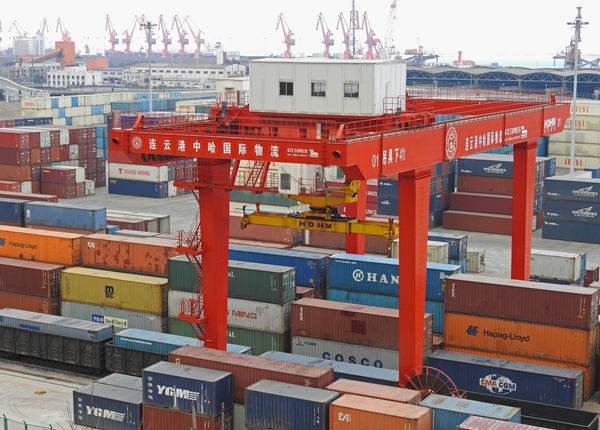
Australia to review lease of port to Chinese firm -media report www.reuters.com
Australia will review the 99-year-lease of a commercial and military port in its north to a Chinese firm, the Sydney Morning Herald reported late on Sunday, a move that could further inflame tensions between Beijing and Canberra.
Defence officials are checking if Landbridge Group, owned by Chinese billionaire Ye Cheng, should be forced to give up its ownership of the port in Darwin, the capital of the Northern Territory, on national security grounds, the newspaper said.
Australia's national security committee has asked the defence department to "come back with some advice" on the lease and the review is underway, Defence Minister Peter Dutton was quoted as saying in the report.
The defence department, the Australian offices of Landbridge and the Chinese embassy in Canberra did not immediately respond to requests for comment.
Landbridge, which has close ties to the Chinese military according to media reports, won a bidding process in 2015 to operate the port in a deal worth A$506 million ($390 million).
The decision raised eyebrows in the United States as the port is the southern flank of U.S. operations in the Pacific. Australian media reported that then President Barack Obama expressed anger at then Prime Minister Malcolm Turnbull for not having informed him of the deal.
Last week, Prime Minister Scott Morrison said he would act on the port's ownership if national security concerns were raised.
Australia overhauled its foreign investment laws almost a year ago, giving the government the power to vary or impose new conditions on a deal or force a divestment even after it has been approved by its Foreign Investment and Review Board.
Relations between Australia and China deteriorated after Canberra last year called for an international inquiry into the origins of COVID-19, prompting trade reprisals from Beijing.
($1 = 1.2962 Australian dollars)
Our Standards: The Thomson Reuters Trust Principles
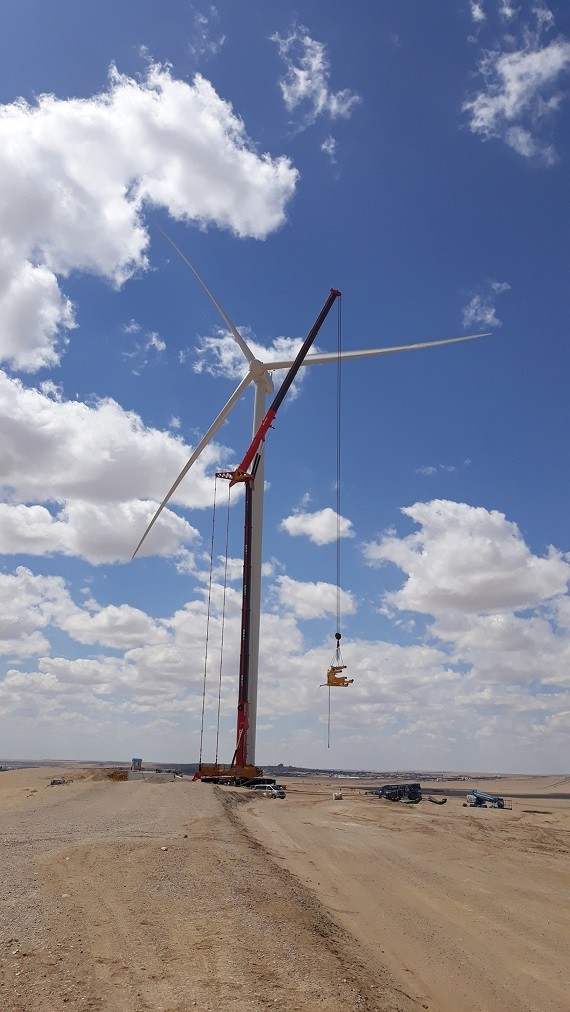
Wind power can add more than 3 MILLION new jobs worldwide over next 5 years – report www.rt.com
A new study by the Global Wind Energy Council (GWEC) found that 3.3 million jobs could be created across the world over the next five years thanks to major industry expansion.
The figure includes direct jobs in onshore and offshore wind. It also covers the sector’s entire value chain: installation, manufacturing, project planning and development, operation and maintenance and decommissioning. Those roles would service an industry forecast to install an extra 470 gigawatts (GW) of onshore and offshore capacity between 2021 and 2025, the GWEC said.
The majority of the jobs will be created in high growth wind markets including China, US, India, Germany, UK, Brazil, France, Sweden, Spain, South Africa, and Taiwan.
“The wind industry has a strong track record of creating high-quality and long-term jobs and reviving communities through an array of industrial opportunities,” said CEO of GWEC Ben Backwell. “As the world still reels from the economic impacts of the Covid-19 pandemic, governments must look to the wind sector as a key industry to create the jobs they need to get their economies back on track,” he added.
According to the International Renewable Energy Agency, with 751 GW of wind power capacity already installed, the industry has generated nearly 1.2 million jobs globally to date. The world’s leading wind energy countries are home to hundreds of thousands of direct jobs in the wind industry. A global survey by GWEC Market Intelligence showed that as of 2020 there were approximately 550,000 wind energy workers in China, as well as 260,000 in Brazil, 115,000 in the US and 63,000 in India.
“As the world recovers from Covid-19, it is crucial that no one gets left behind. The wind sector is well-placed to be a driver of a just transition, with offshore wind in particular offering a response to labor market disruption in the offshore oil and gas and marine engineering sectors,” said Joyce Lee, Head of Policy and Projects at GWEC.

The US’ smooth transition away from coal www.mining.com
For the US to move away from coal, it is important to leverage the social cost of carbon as a tool for making key government decisions about coal mining and cleanup while remaining mindful of environmental justice and coal communities as the transition to other sources of electricity pans out.
This is according to Mark N. Templeton, director of the Abrams Environmental Law Clinic at the University of Chicago Law School, whose essay “Accelerating and Smoothing the Transition Away from Coal” is part of a recent book titled The US Energy and Climate Roadmap, published by the UC’s Energy Policy Institute.
SIGN UP FOR THE ENERGY DIGEST
According to Templeton, despite positive sentiment towards renewables, it is important for people to recognize that coal still makes up about a quarter of US electricity generation, that it is projected to make up about 15% of power in 2050 and that 40% of the coal mined in the country is extracted from federal land.
This means that there are people still employed in this sector – a little over 50,000 – and that abrupt measures can have a significant impact on families and communities, particularly in small towns where mines tend to be major sources of wages.
“We have an obligation to work with coal communities and help them through this transition,” Templeton said in a media statement. “One thing I’ve suggested is that there might be opportunities to leverage the geography of coal: Abandoned mines, which have associated cleanup and reclamation needs, are often located close to where the workers are already, so former miners could potentially be employed in making sure that those sites are dealt with safely and responsibly. Cleaning up abandoned mines also helps to ensure that those communities have clean water in the future.”
In the expert’s view, it is also important for Congress to urgently consider shoring up and expanding the use of the Abandoned Mine Land fund to cover more recent and future mine closures. He points out that, at present, the fund does not have enough money to deal with the most severe environmental damages that can occur from coal mining.
“We also need to make sure that coal companies who are at risk of bankruptcy are required to secure financial assurance from independent entities outside of the industry for their environmental liabilities so that if the coal companies go bankrupt, funds will still be available to pay for cleanup costs,” Templeton said.
The social cost of carbon
Based on previous work by Michael Greenstone, director of the Energy Policy Institute at Chicago, Templeton suggests that the US federal government should set and use an appropriate social cost for carbon and other greenhouse gas emissions.
He explained that the social cost of carbon helps agencies incorporate the social and environmental damage inherent in mining and burning coal over the long term. Once the social cost is adopted, it can be factored into environmental cost-benefit analyses.
“For example, if the federal Bureau of Land Management is deciding whether to lease a tract of land in Montana or Wyoming for coal mining, they might make new estimates factoring in the social cost of carbon and find billions of dollars of social impact, potentially prompting them to reconsider,” the lawyer said. “President Joe Biden’s Environmental Protection Agency also has an opportunity under the Clean Air Act to set new regulations on coal-fired power plant emissions and to write stricter rules for how coal ash should be handled. Finally, the EPA can do a more proactive job of overseeing state regulatory activity.”
Even though many of these proposals can be accomplished without action by Congress, Templeton points out that new legislation or funding administered through legislation—including the $16 billion that the Biden administration has put into the new infrastructure bill for reclaiming abandoned mines—could also be helpful.

Social Inclusion in MCC’s Mongolia Compact: Affordable Water for all in Ulaanbaatar www.mcc.gov
MCC’s Mongolia Water Compact includes collecting and analyzing demographic and household data. In carrying out a survey, one enumerator commented “people are mostly supportive of our survey work because they believe it’s their chance to make their voices heard to policymakers.”
Making public services like water and electricity more affordable and accessible for low income, rural, and marginalized households is a major factor for ensuring social inclusion in MCC’s infrastructure investments. This requires consulting with stakeholders and analyzing demographics and household data to support evidence-based policy decisions.
The Mongolia Water Compact is one example where social inclusion and evidence-based policymaking are front and center. In the Mongolia Compact, social inclusion means keeping water affordable, even as tariffs rise to pay for the needed infrastructure improvements that will address the water shortages that threaten the rapidly growing population of the capital city, Ulaanbaatar (“UB”). Social inclusion also means water service providers and policymakers understand the needs and concerns of all types of households and individuals in the city so that data can inform their decisions.
In UB—home to nearly half of the country’s population— people get water in two ways, which leads to substantially different levels of water consumption depending on where people live. People who live in the central city, generally in apartments, have indoor plumbing and water piped into their homes. People living in “ger areas” outside the center city access drinking water through public water kiosks in their neighborhoods and use outhouses on their land, as well as public bathhouses and laundries. Ger area residents make up more than half of the city’s population and a majority of the city’s poor households. At the same time, despite their numbers, ger area residents consume far less water than apartment households. They also pay more per liter of water than do households connected to the central water and sewer network, despite their lack of connection to the water network. A 2016 study projected that in 2021, ger area residents will consume less than seven percent of the city’s total household consumption of water.
The Path to Social Inclusion
The compact is addressing these disparities by supporting the water regulator and other key policymakers to undertake tariff reform that works to make sure that water remains affordable for all, while also ensuring that people who can pay a cost-reflective price for water do pay. Financial sustainability for the utility will help ensure the long-term sustainability of UB’s water supply. The goal is to generate sufficient revenue for the municipal water utility to cover its true costs of operations, maintenance, and new investments, without exacerbating existing inequalities or generating public perceptions that higher tariffs are unfair.
The compact’s main social inclusion activity has four phases. During the first phase, the Mongolian National Statistics Office (NSO) carried out a willingness to pay (“WTP”) survey of approximately 5,000 apartment and ger area households in UB in September and October 2020. The survey collected data from households about their socioeconomic and water consumption, along with statements willingness to pay for water under future scenarios, opinions about the quality of water and water service, and experiences with billing and payments.
Mr. Amarabal, the Director of the NSO’s Population and Social Statistics Department said, “This survey will be a foundation for many future projects and studies in the water sector…The collaboration between the NSO of Mongolia and the Millennium Challenge Account of Mongolia is a big step to show the public the importance of a research-based decision-making process.” The collaboration is also likely to make the data and the related decision making more credible with the public and policymakers, who can be skeptical of data from private research firms and foreign consultants.
A survey enumerator collects household information from residents in “ger areas” outside Ulaanbaatar as part of the compact’s social inclusion and affordability activity.
After policymakers’ review of the WTP survey findings, expected in summer 2021, the next phase of the social inclusion activity will use the socioeconomic and water consumption data from the WTP survey to assess how affordable different tiers of water pricing are for apartment and ger area households in various income brackets. Researchers will then be able to identify which types of households will face affordability problems at different tariff levels. They will use this data to provide recommendations to policymakers about the design, scope, and budget to initiate a targeted customer assistance program to help low-income customers to pay for water. The third phase of the research will provide policymakers with recommendations for revising the water tariff system in UB, prioritizing both water affordability and the water utility’s financial sustainability. The final phase of the activity will enable MCC to follow-up on the priorities of the utility, regulator, and municipal government.
MCC’s investment in Mongolia aims to prevent a water crisis in UB by creating a sustainable water supply. By focusing on social inclusion from the very beginning of the compact, MCC is providing decision makers with the data to create policies that are more likely to be effective, because they consider the realities of existing inequalities and how that will affect outcomes. The people of UB are telling their water story, and now policymakers have a way to listen.
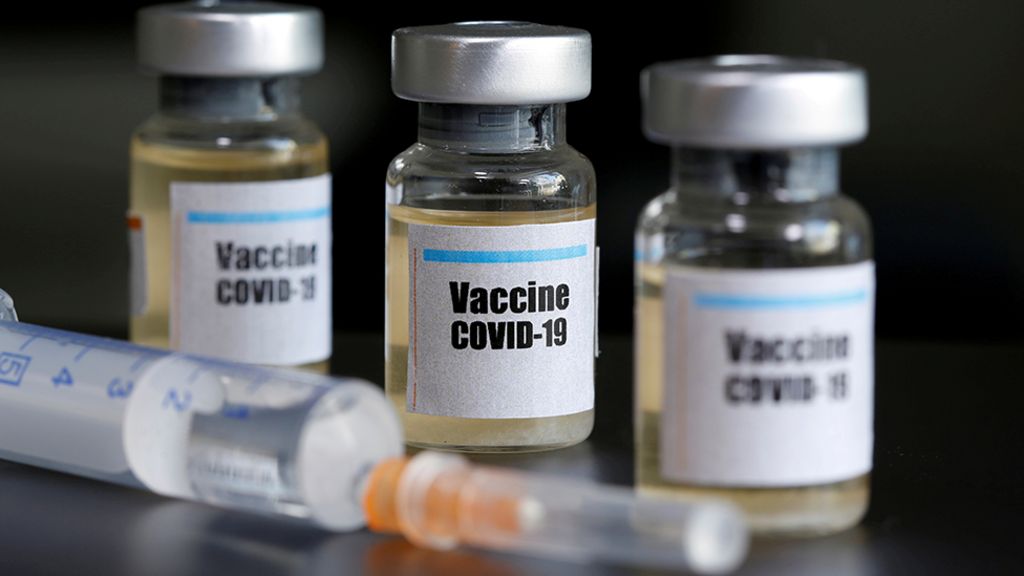
All adults of Mongolia's capital to get first doses of COVID-19 vaccines by May 8 www.xinhuanet.com
April 28 (Xinhua) -- All adult residents of Mongolia's capital Ulan Bator will receive the first jabs of COVID-19 vaccines before May 8, the date marking the end of the ongoing national lockdown, Mongolian Health Minister Sereejav Enkhbold said Wednesday.
In addition, the government has planned to offer the second doses of the vaccines to the adults in the city by the end of May, said Enkhbold.
Mongolia has so far registered a total of 33,608 COVID-19 cases, and most of them were detected in Ulan Bator, which is the hardest hit by COVID-19 and home to over half of the country's 3.3 million population.
The full nationwide lockdown, aimed at curbing the steep surge in local COVID-19 cases, took effect on April 10.
The Asian country is planning to vaccinate at least 60 percent of its total population against COVID-19, and 744,564 Mongolians have so far received jabs of vaccines, according to the country's health ministry
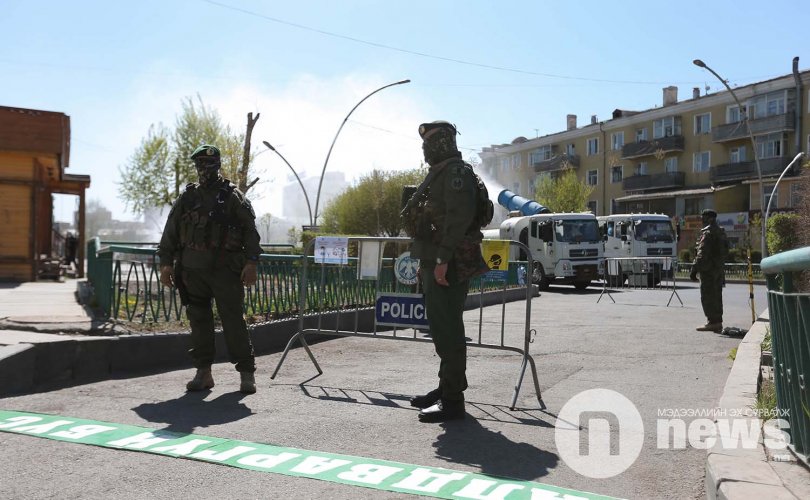
Mongolia recorded 1,015 new coronavirus cases, 5 deaths www.akipress.com
Mongolia recorded 1,015 new coronavirus cases in the past 24 hours after 11,145 PCR tests performed nationwide, the Ministry of Health reported on April 29.
864 new cases were confirmed in Ulaanbaatar city, one was hospital-acquired case, one case was imported, and 149 cases were detected in rural regions, including Zavkhan, Darkhan-Uul, Orkhon, Arkhangai, Bulgan, Uvurkhangai, Gobisumber, Dundgobi, Gobi-Altai, Khovd, Selenge and Tuv aimags.
These new cases bring the national infection tally to 34,623.
686 coronavirus patients were recovered, making the number of COVID-19 recoveries 18,719.
As of April 29, a total of 4,786 coronavirus patients are being treated at hospitals. Another 3,388 patients are being treated at home.
5 new COVID-19 related deaths occurred during the day raising the country's death toll to 102. a

Ard Financial Group adds Mongolian Securities Exchange to its portfolio www.montsame.mn
Ard Financial Group JSC (Ard) and its subsidiary Ard X LLC (DAX) have invested in and started a strategic partnership with the Mongolian Securities Exchange. This partnership opens the door for the development of the stock market and non-bank financial sector in Mongolia.
Ganhuyag, Ard's CEO, said: "The stock market has been developing in Mongolia for 30 years. With its mission to Build the Investor Nation, Ard and its affiliated public companies have played a crucial role in developing the stock market. We believe that the new Securities Exchange and our experience in this field will bring the Mongolian stock market to the international players. To do this, we have a lot of work to do, such as creating a modern online system and building a strong team. By the way, I would like to call on all securities companies to work together for the development of the stock market."
The Mongolian Securities Exchange (MSX), was established on May 1, 2015, is a regulated securities exchange operating in Mongolia. Under the motto "Move Every Asset," it aims to help develop the Mongolian financial market by introducing world-class exchange services.
The Mongolian Securities Exchange is regulated by the Law on Securities Market, the regulations approved by the Financial Regulatory Commission within the framework of this law, the license to conduct trading and settlement activities in the securities market, and the main operating procedures of the Mongolian Stock Exchange
DAX is part of Ard Financial Group, a digital assets exchange, which started operating on December 14. It offers digital exchange services according to the standards of international crypto platforms and facilitates cryptocurrency trading. Since its inception, a total of 860,000 customers have traded over MNT 1 trillion worth of assets on the Exchange. It aims to expand its operations internationally.
Ard Financial Group is a diversified financial services holding company with the overarching goal of increasing its shareholders’ equity through investing in and developing leading financial services and technology companies. Our investment portfolio consists of companies such as Ard Insurance, Ard Credit, Ard Securities, Ard Life, Ard Assets, Ard Management, Ard Bit, TenGer Systems, MEC Partners (ardshop.mn), Mongol Post, Ard Holdings International, Ard Leasing, Ard Properties and Ard Realty. Ard App, Ard Fintech, ArdCoin, Ard Cash, ArdMoney, CryptoNation and Ard Digital Bazaar are proprietary digital products based on artificial intelligence and blockchain technology.
Companies in Ard Financial Group’s portfolio that are also listed on the MSE: MSE: AARD (03260) Ard Financial Group (formerly Jinst Uvs/Investor Nation), MSE: AIC (05480) Ard Insurance, MSE: ADB (05509) Ard Credit, MSE: MNP (05412) Mongol Post and MSE: XOC (4001) National Privatization Fund.
Source: www.ardholdings.com
- «
- 1
- 2
- 3
- 4
- 5
- 6
- 7
- 8
- 9
- 10
- 11
- 12
- 13
- 14
- 15
- 16
- 17
- 18
- 19
- 20
- 21
- 22
- 23
- 24
- 25
- 26
- 27
- 28
- 29
- 30
- 31
- 32
- 33
- 34
- 35
- 36
- 37
- 38
- 39
- 40
- 41
- 42
- 43
- 44
- 45
- 46
- 47
- 48
- 49
- 50
- 51
- 52
- 53
- 54
- 55
- 56
- 57
- 58
- 59
- 60
- 61
- 62
- 63
- 64
- 65
- 66
- 67
- 68
- 69
- 70
- 71
- 72
- 73
- 74
- 75
- 76
- 77
- 78
- 79
- 80
- 81
- 82
- 83
- 84
- 85
- 86
- 87
- 88
- 89
- 90
- 91
- 92
- 93
- 94
- 95
- 96
- 97
- 98
- 99
- 100
- 101
- 102
- 103
- 104
- 105
- 106
- 107
- 108
- 109
- 110
- 111
- 112
- 113
- 114
- 115
- 116
- 117
- 118
- 119
- 120
- 121
- 122
- 123
- 124
- 125
- 126
- 127
- 128
- 129
- 130
- 131
- 132
- 133
- 134
- 135
- 136
- 137
- 138
- 139
- 140
- 141
- 142
- 143
- 144
- 145
- 146
- 147
- 148
- 149
- 150
- 151
- 152
- 153
- 154
- 155
- 156
- 157
- 158
- 159
- 160
- 161
- 162
- 163
- 164
- 165
- 166
- 167
- 168
- 169
- 170
- 171
- 172
- 173
- 174
- 175
- 176
- 177
- 178
- 179
- 180
- 181
- 182
- 183
- 184
- 185
- 186
- 187
- 188
- 189
- 190
- 191
- 192
- 193
- 194
- 195
- 196
- 197
- 198
- 199
- 200
- 201
- 202
- 203
- 204
- 205
- 206
- 207
- 208
- 209
- 210
- 211
- 212
- 213
- 214
- 215
- 216
- 217
- 218
- 219
- 220
- 221
- 222
- 223
- 224
- 225
- 226
- 227
- 228
- 229
- 230
- 231
- 232
- 233
- 234
- 235
- 236
- 237
- 238
- 239
- 240
- 241
- 242
- 243
- 244
- 245
- 246
- 247
- 248
- 249
- 250
- 251
- 252
- 253
- 254
- 255
- 256
- 257
- 258
- 259
- 260
- 261
- 262
- 263
- 264
- 265
- 266
- 267
- 268
- 269
- 270
- 271
- 272
- 273
- 274
- 275
- 276
- 277
- 278
- 279
- 280
- 281
- 282
- 283
- 284
- 285
- 286
- 287
- 288
- 289
- 290
- 291
- 292
- 293
- 294
- 295
- 296
- 297
- 298
- 299
- 300
- 301
- 302
- 303
- 304
- 305
- 306
- 307
- 308
- 309
- 310
- 311
- 312
- 313
- 314
- 315
- 316
- 317
- 318
- 319
- 320
- 321
- 322
- 323
- 324
- 325
- 326
- 327
- 328
- 329
- 330
- 331
- 332
- 333
- 334
- 335
- 336
- 337
- 338
- 339
- 340
- 341
- 342
- 343
- 344
- 345
- 346
- 347
- 348
- 349
- 350
- 351
- 352
- 353
- 354
- 355
- 356
- 357
- 358
- 359
- 360
- 361
- 362
- 363
- 364
- 365
- 366
- 367
- 368
- 369
- 370
- 371
- 372
- 373
- 374
- 375
- 376
- 377
- 378
- 379
- 380
- 381
- 382
- 383
- 384
- 385
- 386
- 387
- 388
- 389
- 390
- 391
- 392
- 393
- 394
- 395
- 396
- 397
- 398
- 399
- 400
- 401
- 402
- 403
- 404
- 405
- 406
- 407
- 408
- 409
- 410
- 411
- 412
- 413
- 414
- 415
- 416
- 417
- 418
- 419
- 420
- 421
- 422
- 423
- 424
- 425
- 426
- 427
- 428
- 429
- 430
- 431
- 432
- 433
- 434
- 435
- 436
- 437
- 438
- 439
- 440
- 441
- 442
- 443
- 444
- 445
- 446
- 447
- 448
- 449
- 450
- 451
- 452
- 453
- 454
- 455
- 456
- 457
- 458
- 459
- 460
- 461
- 462
- 463
- 464
- 465
- 466
- 467
- 468
- 469
- 470
- 471
- 472
- 473
- 474
- 475
- 476
- 477
- 478
- 479
- 480
- 481
- 482
- 483
- 484
- 485
- 486
- 487
- 488
- 489
- 490
- 491
- 492
- 493
- 494
- 495
- 496
- 497
- 498
- 499
- 500
- 501
- 502
- 503
- 504
- 505
- 506
- 507
- 508
- 509
- 510
- 511
- 512
- 513
- 514
- 515
- 516
- 517
- 518
- 519
- 520
- 521
- 522
- 523
- 524
- 525
- 526
- 527
- 528
- 529
- 530
- 531
- 532
- 533
- 534
- 535
- 536
- 537
- 538
- 539
- 540
- 541
- 542
- 543
- 544
- 545
- 546
- 547
- 548
- 549
- 550
- 551
- 552
- 553
- 554
- 555
- 556
- 557
- 558
- 559
- 560
- 561
- 562
- 563
- 564
- 565
- 566
- 567
- 568
- 569
- 570
- 571
- 572
- 573
- 574
- 575
- 576
- 577
- 578
- 579
- 580
- 581
- 582
- 583
- 584
- 585
- 586
- 587
- 588
- 589
- 590
- 591
- 592
- 593
- 594
- 595
- 596
- 597
- 598
- 599
- 600
- 601
- 602
- 603
- 604
- 605
- 606
- 607
- 608
- 609
- 610
- 611
- 612
- 613
- 614
- 615
- 616
- 617
- 618
- 619
- 620
- 621
- 622
- 623
- 624
- 625
- 626
- 627
- 628
- 629
- 630
- 631
- 632
- 633
- 634
- 635
- 636
- 637
- 638
- 639
- 640
- 641
- 642
- 643
- 644
- 645
- 646
- 647
- 648
- 649
- 650
- 651
- 652
- 653
- 654
- 655
- 656
- 657
- 658
- 659
- 660
- 661
- 662
- 663
- 664
- 665
- 666
- 667
- 668
- 669
- 670
- 671
- 672
- 673
- 674
- 675
- 676
- 677
- 678
- 679
- 680
- 681
- 682
- 683
- 684
- 685
- 686
- 687
- 688
- 689
- 690
- 691
- 692
- 693
- 694
- 695
- 696
- 697
- 698
- 699
- 700
- 701
- 702
- 703
- 704
- 705
- 706
- 707
- 708
- 709
- 710
- 711
- 712
- 713
- 714
- 715
- 716
- 717
- 718
- 719
- 720
- 721
- 722
- 723
- 724
- 725
- 726
- 727
- 728
- 729
- 730
- 731
- 732
- 733
- 734
- 735
- 736
- 737
- 738
- 739
- 740
- 741
- 742
- 743
- 744
- 745
- 746
- 747
- 748
- 749
- 750
- 751
- 752
- 753
- 754
- 755
- 756
- 757
- 758
- 759
- 760
- 761
- 762
- 763
- 764
- 765
- 766
- 767
- 768
- 769
- 770
- 771
- 772
- 773
- 774
- 775
- 776
- 777
- 778
- 779
- 780
- 781
- 782
- 783
- 784
- 785
- 786
- 787
- 788
- 789
- 790
- 791
- 792
- 793
- 794
- 795
- 796
- 797
- 798
- 799
- 800
- 801
- 802
- 803
- 804
- 805
- 806
- 807
- 808
- 809
- 810
- 811
- 812
- 813
- 814
- 815
- 816
- 817
- 818
- 819
- 820
- 821
- 822
- 823
- 824
- 825
- 826
- 827
- 828
- 829
- 830
- 831
- 832
- 833
- 834
- 835
- 836
- 837
- 838
- 839
- 840
- 841
- 842
- 843
- 844
- 845
- 846
- 847
- 848
- 849
- 850
- 851
- 852
- 853
- 854
- 855
- 856
- 857
- 858
- 859
- 860
- 861
- 862
- 863
- 864
- 865
- 866
- 867
- 868
- 869
- 870
- 871
- 872
- 873
- 874
- 875
- 876
- 877
- 878
- 879
- 880
- 881
- 882
- 883
- 884
- 885
- 886
- 887
- 888
- 889
- 890
- 891
- 892
- 893
- 894
- 895
- 896
- 897
- 898
- 899
- 900
- 901
- 902
- 903
- 904
- 905
- 906
- 907
- 908
- 909
- 910
- 911
- 912
- 913
- 914
- 915
- 916
- 917
- 918
- 919
- 920
- 921
- 922
- 923
- 924
- 925
- 926
- 927
- 928
- 929
- 930
- 931
- 932
- 933
- 934
- 935
- 936
- 937
- 938
- 939
- 940
- 941
- 942
- 943
- 944
- 945
- 946
- 947
- 948
- 949
- 950
- 951
- 952
- 953
- 954
- 955
- 956
- 957
- 958
- 959
- 960
- 961
- 962
- 963
- 964
- 965
- 966
- 967
- 968
- 969
- 970
- 971
- 972
- 973
- 974
- 975
- 976
- 977
- 978
- 979
- 980
- 981
- 982
- 983
- 984
- 985
- 986
- 987
- 988
- 989
- 990
- 991
- 992
- 993
- 994
- 995
- 996
- 997
- 998
- 999
- 1000
- 1001
- 1002
- 1003
- 1004
- 1005
- 1006
- 1007
- 1008
- 1009
- 1010
- 1011
- 1012
- 1013
- 1014
- 1015
- 1016
- 1017
- 1018
- 1019
- 1020
- 1021
- 1022
- 1023
- 1024
- 1025
- 1026
- 1027
- 1028
- 1029
- 1030
- 1031
- 1032
- 1033
- 1034
- 1035
- 1036
- 1037
- 1038
- 1039
- 1040
- 1041
- 1042
- 1043
- 1044
- 1045
- 1046
- 1047
- 1048
- 1049
- 1050
- 1051
- 1052
- 1053
- 1054
- 1055
- 1056
- 1057
- 1058
- 1059
- 1060
- 1061
- 1062
- 1063
- 1064
- 1065
- 1066
- 1067
- 1068
- 1069
- 1070
- 1071
- 1072
- 1073
- 1074
- 1075
- 1076
- 1077
- 1078
- 1079
- 1080
- 1081
- 1082
- 1083
- 1084
- 1085
- 1086
- 1087
- 1088
- 1089
- 1090
- 1091
- 1092
- 1093
- 1094
- 1095
- 1096
- 1097
- 1098
- 1099
- 1100
- 1101
- 1102
- 1103
- 1104
- 1105
- 1106
- 1107
- 1108
- 1109
- 1110
- 1111
- 1112
- 1113
- 1114
- 1115
- 1116
- 1117
- 1118
- 1119
- 1120
- 1121
- 1122
- 1123
- 1124
- 1125
- 1126
- 1127
- 1128
- 1129
- 1130
- 1131
- 1132
- 1133
- 1134
- 1135
- 1136
- 1137
- 1138
- 1139
- 1140
- 1141
- 1142
- 1143
- 1144
- 1145
- 1146
- 1147
- 1148
- 1149
- 1150
- 1151
- 1152
- 1153
- 1154
- 1155
- 1156
- 1157
- 1158
- 1159
- 1160
- 1161
- 1162
- 1163
- 1164
- 1165
- 1166
- 1167
- 1168
- 1169
- 1170
- 1171
- 1172
- 1173
- 1174
- 1175
- 1176
- 1177
- 1178
- 1179
- 1180
- 1181
- 1182
- 1183
- 1184
- 1185
- 1186
- 1187
- 1188
- 1189
- 1190
- 1191
- 1192
- 1193
- 1194
- 1195
- 1196
- 1197
- 1198
- 1199
- 1200
- 1201
- 1202
- 1203
- 1204
- 1205
- 1206
- 1207
- 1208
- 1209
- 1210
- 1211
- 1212
- 1213
- 1214
- 1215
- 1216
- 1217
- 1218
- 1219
- 1220
- 1221
- 1222
- 1223
- 1224
- 1225
- 1226
- 1227
- 1228
- 1229
- 1230
- 1231
- 1232
- 1233
- 1234
- 1235
- 1236
- 1237
- 1238
- 1239
- 1240
- 1241
- 1242
- 1243
- 1244
- 1245
- 1246
- 1247
- 1248
- 1249
- 1250
- 1251
- 1252
- 1253
- 1254
- 1255
- 1256
- 1257
- 1258
- 1259
- 1260
- 1261
- 1262
- 1263
- 1264
- 1265
- 1266
- 1267
- 1268
- 1269
- 1270
- 1271
- 1272
- 1273
- 1274
- 1275
- 1276
- 1277
- 1278
- 1279
- 1280
- 1281
- 1282
- 1283
- 1284
- 1285
- 1286
- 1287
- 1288
- 1289
- 1290
- 1291
- 1292
- 1293
- 1294
- 1295
- 1296
- 1297
- 1298
- 1299
- 1300
- 1301
- 1302
- 1303
- 1304
- 1305
- 1306
- 1307
- 1308
- 1309
- 1310
- 1311
- 1312
- 1313
- 1314
- 1315
- 1316
- 1317
- 1318
- 1319
- 1320
- 1321
- 1322
- 1323
- 1324
- 1325
- 1326
- 1327
- 1328
- 1329
- 1330
- 1331
- 1332
- 1333
- 1334
- 1335
- 1336
- 1337
- 1338
- 1339
- 1340
- 1341
- 1342
- 1343
- 1344
- 1345
- 1346
- 1347
- 1348
- 1349
- 1350
- 1351
- 1352
- 1353
- 1354
- 1355
- 1356
- 1357
- 1358
- 1359
- 1360
- 1361
- 1362
- 1363
- 1364
- 1365
- 1366
- 1367
- 1368
- 1369
- 1370
- 1371
- 1372
- 1373
- 1374
- 1375
- 1376
- 1377
- 1378
- 1379
- 1380
- 1381
- 1382
- 1383
- 1384
- 1385
- 1386
- 1387
- 1388
- 1389
- 1390
- 1391
- 1392
- 1393
- 1394
- 1395
- 1396
- 1397
- 1398
- 1399
- 1400
- 1401
- 1402
- 1403
- 1404
- 1405
- 1406
- 1407
- 1408
- 1409
- 1410
- 1411
- 1412
- 1413
- 1414
- 1415
- 1416
- 1417
- 1418
- 1419
- 1420
- 1421
- 1422
- 1423
- 1424
- 1425
- 1426
- 1427
- 1428
- 1429
- 1430
- 1431
- 1432
- 1433
- 1434
- 1435
- 1436
- 1437
- 1438
- 1439
- 1440
- 1441
- 1442
- 1443
- 1444
- 1445
- 1446
- 1447
- 1448
- 1449
- 1450
- 1451
- 1452
- 1453
- 1454
- 1455
- 1456
- 1457
- 1458
- 1459
- 1460
- 1461
- 1462
- 1463
- 1464
- 1465
- 1466
- 1467
- 1468
- 1469
- 1470
- 1471
- 1472
- 1473
- 1474
- 1475
- 1476
- 1477
- 1478
- 1479
- 1480
- 1481
- 1482
- 1483
- 1484
- 1485
- 1486
- 1487
- 1488
- 1489
- 1490
- 1491
- 1492
- 1493
- 1494
- 1495
- 1496
- 1497
- 1498
- 1499
- 1500
- 1501
- 1502
- 1503
- 1504
- 1505
- 1506
- 1507
- 1508
- 1509
- 1510
- 1511
- 1512
- 1513
- 1514
- 1515
- 1516
- 1517
- 1518
- 1519
- 1520
- 1521
- 1522
- 1523
- 1524
- 1525
- 1526
- 1527
- 1528
- 1529
- 1530
- 1531
- 1532
- 1533
- 1534
- 1535
- 1536
- 1537
- 1538
- 1539
- 1540
- 1541
- 1542
- 1543
- 1544
- 1545
- 1546
- 1547
- 1548
- 1549
- 1550
- 1551
- 1552
- 1553
- 1554
- 1555
- 1556
- 1557
- 1558
- 1559
- 1560
- 1561
- 1562
- 1563
- 1564
- 1565
- 1566
- 1567
- 1568
- 1569
- 1570
- 1571
- 1572
- 1573
- 1574
- 1575
- 1576
- 1577
- 1578
- 1579
- 1580
- 1581
- 1582
- 1583
- 1584
- 1585
- 1586
- 1587
- 1588
- 1589
- 1590
- 1591
- 1592
- 1593
- 1594
- 1595
- 1596
- 1597
- 1598
- 1599
- 1600
- 1601
- 1602
- 1603
- 1604
- 1605
- 1606
- 1607
- 1608
- 1609
- 1610
- 1611
- 1612
- 1613
- 1614
- 1615
- 1616
- 1617
- 1618
- 1619
- 1620
- 1621
- 1622
- 1623
- 1624
- 1625
- 1626
- 1627
- 1628
- 1629
- 1630
- 1631
- 1632
- 1633
- 1634
- 1635
- 1636
- 1637
- 1638
- 1639
- 1640
- 1641
- 1642
- 1643
- 1644
- 1645
- 1646
- 1647
- 1648
- 1649
- 1650
- 1651
- 1652
- 1653
- 1654
- 1655
- 1656
- 1657
- 1658
- 1659
- 1660
- 1661
- 1662
- 1663
- 1664
- 1665
- 1666
- 1667
- 1668
- 1669
- 1670
- 1671
- 1672
- 1673
- 1674
- 1675
- 1676
- 1677
- 1678
- 1679
- 1680
- 1681
- 1682
- 1683
- 1684
- 1685
- 1686
- 1687
- 1688
- 1689
- 1690
- 1691
- 1692
- 1693
- 1694
- 1695
- 1696
- 1697
- 1698
- 1699
- 1700
- 1701
- 1702
- 1703
- 1704
- 1705
- 1706
- 1707
- 1708
- 1709
- 1710
- 1711
- 1712
- »






